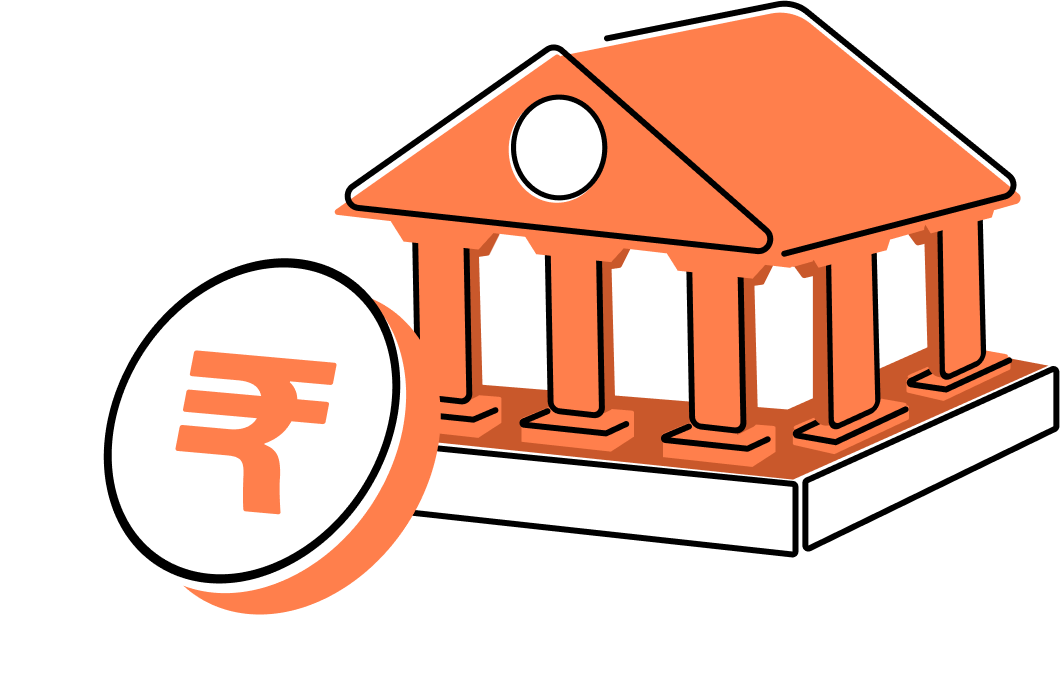
People typically take out a home loan to either purchase a house/flat or a plot of land for the construction of a house, or to renovate, extend, and repair an existing house. Because of the high cost of real estate in India, becoming a homeowner usually necessitates the use of a loan.
Let us first learn the meaning of a home loan.
A house loan, also known as a home loan, can be defined as a sum of money borrowed from a financial institution or bank to purchase a home. Home loans have an adjustable or fixed interest rate as well as payment terms.
The property is mortgaged to the lender as security until the loan is repaid. The bank or financial institution will keep the title or deed to the property until the loan is repaid in full, including interest.
Certain tax benefits are also available on your home loan under Section 80EE of the Income Tax Act. However, only first-time homebuyers are eligible for the income tax deduction on home loan interest.
News Update
The year 2025 saw Tier-2 and Tier-3 cities contributing 64% of all home loan volumes. As the prices in metropolitan cities rose, new homebuyers ventured to smaller cities and the outskirts of urban areas.
(As reported by Business Standard on 14 January 2026)
Banks and other financial institutions have specific eligibility criteria.
The first thing a bank looks at to evaluate a person's repayment tendencies is their credit history. A credit score of 750 or higher is typically preferable.
Other significant parameters to consider are as follows:
The list of documents for different types of individuals are mentioned below:
As of March 2021, the average house loan interest rate in India ranges from 6.5-12%. Rates typically vary according to lender, RBI-prescribed repo rate, inflation, economic activity, and a variety of other reasons.
Some banks also provide a 0.05% discount on the house loan interest rate to women, bank employees, and older persons.
Furthermore, the interest rate on a home loan can be fixed or floating. A fixed-rate home loan has a fixed interest rate for a set length of time. This type of mortgage is not affected by market fluctuations.
The relevant interest rate for floating-rate home loans varies depending on market swings. It may or may not be advantageous to the borrower.
To receive a home loan quickly, you must have a CIBIL score of at least 750. The lender will look at your credit score and report first. If the score is low, the application may be refused completely.
Your CIBIL score determines your creditworthiness, and a high score may help you negotiate better terms and circumstances. CIBIL scores often vary from 300 to 900. Your payment history has an impact on your CIBIL score. Defaults on loan EMIs or late payments have a negative influence on the credit score.
The credit utilization limit is also significant in calculating the CIBIL score. Increases in your credit card balance may have a negative influence on your score.
Having a higher percentage of unsecured loans, such as credit cards or personal loans, as opposed to secured loans, such as home loans or auto loans, may also have a negative impact on the score.
Also, if you have lately been approved for many credit cards or loans, your credit score may suffer because your debt burden will have increased significantly and you will be viewed as desperate for credit.
A home equity loan is a sort of consumer debt that is also known as an equity loan, home equity installment loan, or second mortgage. Home equity loans allow homeowners to borrow against their home's equity.
The loan amount is determined by the difference between the home's current market value and the homeowner's outstanding mortgage balance. Home equity loans are typically fixed-rate, whereas home equity lines of credit (HELOCs) are typically variable-rate.
A home equity loan is similar to a mortgage, hence the term second mortgage. The lender uses the equity in the residence as security.
The amount a homeowner can borrow will be determined in part by a combined loan-to-value (CLTV) ratio of 80% to 90% of the home's appraised value. Of course, the loan amount and interest rate are also determined by the borrower's credit score and payment history.
Home Loan Types & Eligibility Guide
Home Loan Insights and Guides
Loan Schemes and MSME Loans
Disclaimer
The starting interest rate depends on factors such as credit history, financial obligations, specific lender's criteria and Terms and conditions. Moneyview is a digital lending platform; all loans are evaluated and disbursed by our lending partners, who are registered as Non-Banking Financial Companies or Banks with the Reserve Bank of India.
This article is for informational purposes only and does not constitute financial or legal advice. Always consult with your financial advisor for specific guidance.
Was this information useful?